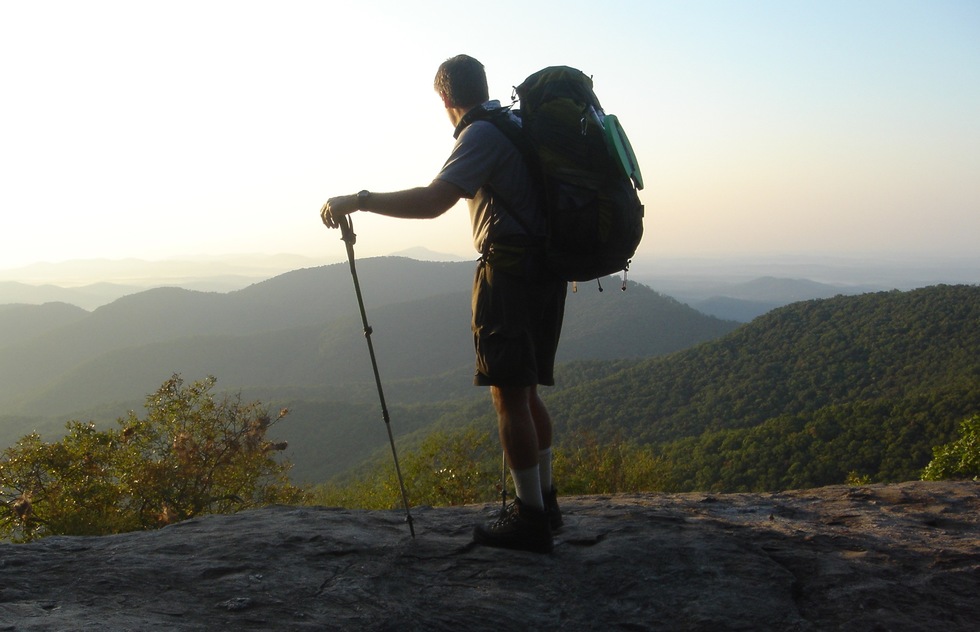The Appalachian Trail Conservancy, the group that maintains one of the greatest long-distance footpaths in the United States, is imploring hikers to postpone visits for another year.
You'd think that during a pandemic there would be no more ideal vacation than walking some of the 2,190 miles of trails winding from Georgia to Maine—and, indeed, because so many people agree, that's just the problem.
A long-distance hike is about more than walking. It's also about shelter. Since opening on December 1, the Appalachian Trail's network of 250 lean-tos has already received so many advance reservations for 2021 that if more people show up, organizers can no longer vouch for safe social distancing.
Where the trail connects with settled areas, popular lunch stops and privies are also bound to be swamped with more bodies than they can safely handle.
In several spots, the Conservancy's website repeats the admonition that "the ATC continues to advise long-distance hikers to postpone hikes until 2022 or when the Centers for Disease Control (CDC) has deemed the pandemic under control."
In addition to begging hikers to avoid the trail in Georgia and southern North Carolina during the months of March and April, when traffic is projected to be high, the ATC is also asking those who still plan to walk any portion of the trail in 2021 to register their hikes so that the participants can be spaced apart.
Those who still elect to hike the trail this year might find themselves excluded from the established shelters along the route and will instead have to camp in the wilderness. Partly for this reason, the ATC is strongly encouraging would-be hikers to equip themselves with bear-proof canisters and to educate themselves about how to prevent bear attacks.
On the other end of the continental U.S., the Pacific Crest Trail is facing a different type of uncertainty.
Although permits are issued to help control trail capacity, the route is subject to any stay-at-home orders in the states—California, Oregon, and Washington—the trail passes through.
"If state stay-at-home orders are issued after you have begun your trip," warns the Pacific Crest Trail Association, which preserves and promotes the path, "you’ll have to leave the trail, as your permit will no longer be valid."






